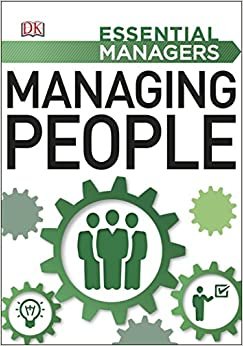एक व्यक्ति समग्र रूप से माने जाने वाले व्यक्तियों की बहुलता है।
राजनीति और कानून में प्रयुक्त यह एक जातीय समूह, एक राष्ट्र के सामूहिक या समुदाय को संदर्भित करने के लिए एक शब्द है, जो जनता या एक राजनीति के आम लोगों के लिए है। जैसे कि यह मानवाधिकार कानून, अंतरराष्ट्रीय कानून और साथ ही संवैधानिक कानून की अवधारणा है, विशेष रूप से लोकप्रिय संप्रभुता के दावों के लिए उपयोग किया जाता है।
“A people is any plurality of persons considered as a whole”.
Used in politics and law it is a term to refer to the collective or community of an ethnic group, a nation, to the public or common mass of people of a polity. As such it is a concept of human rights law, international law as well as constitutional law, particularly used for claims of popular sovereignty.
What is a People Manager
Effective management of people is important for any organisation’s productivity and output. People managers are leaders who care about every employee’s growth and well-being and also manage people effectively. Understanding the basic people-management skills can help you discover your strengths and identify areas for improvement. In this article, we answer, “What does a people manager do?”, explain why it is important and share how to develop people-management skills.
What does a people manager do?
People managers improve workplace communication and prepare employees for success by using their people-management skills. From handling interpersonal conflicts to building company culture, they play an important role in the success of an organisation. People managers understand their team members and care about the organisation and the people in it.
Management is not just about serving a commercial or an administrative purpose. People managers perform a number of activities, such as onboarding new employees, making decisions and solving problems. They use their people-management skills to get work done by engaging and developing their team members.
What is people management?
People management can be defined as the process of recruiting, managing and providing the right direction and support to the employees working in the organisation. The process can be further classified into training, managing performance, incentives, leadership and wellness.
People managers use people management to oversee workflow and boost employee performance regularly. People management can be helpful in many situations, such as managing deadlines, leading employee training and building company culture.
To Read more such informative Blogs Click Here
hradvosrs4u Blogs
Skills for a people manager
People managers require several soft skills, which include communication, patience and trust. Each of these skills can better help them interact with their employees and perform organisational tasks. Here are ten essential skills that people managers require:
1. Good communication
People managers have clarity in what they say so that they can make sure that all employees understand them. Good communication skills enable people managers to work together in solving problems, brainstorming new ideas and adapting to new changes. They use clear and simple language so that every employee understands their message. Practice effective communication skills so that every employee understands what you want to say.
2. Flexibility
People managers understand multiple ways to complete a task. They are flexible enough to adjust to changing situations quickly. Knowing when to be flexible and when to more firmly direct employees is an important aspect of effective people management. People managers allow employees to adjust their individual workflow. This helps them be as productive as possible. Demonstrating flexibility in their management style is one of the essential skills people managers require.
3. Patience
Patience is an essential people-management skill that helps people managers stay calm during stressful situations. People managers perform major activities that require patience, such as training new employees, handling conflicts and solving problems. For example, if an employee does not understand the process and keeps asking questions about it, the people manager’s job is to guide them while trying new ways to better communicate their message. They use their patience skills to encourage employees to ask for help whenever they need it.
4. Ability to listen
People managers use their active listening skills to listen to what the employees are saying. They fully understand every employee’s concern before responding. To do so, people managers remove distractions and maintain eye contact to indicate their engagement. People managers often use non-verbal cues and respond thoughtfully by repeating a summary of their message. Their ability to listen without interrupting leads to quality people management.
5. Leadership skills
People managers have the ability to lead effectively by motivating their team to perform better. They understand what motivates their team members and give them what they need to succeed. People managers empower employees to develop new skills and be more productive. They offer constructive feedback to employees and are available for questions or additional training.
6. Ability to adapt
Adaptability is a little different skill from flexibility. People managers have the skills to adapt to changing situations. People managers are able to adapt to new challenges and opportunities. They use adaptability in action by revising their functional strategies to reflect the changing requirements of the situation.
7. Problem-solving skills
People managers have strong problem-solving skills as it is the foundation of their job. They track employee’s work hours and progress, manage deadlines and handle interpersonal conflicts in the organisation. People managers use their problem-solving skills to recognise potential problems and take steps to fix the issue. Good conflict-resolution skills can help address interpersonal challenges. They analyse the situation and identify the cause of any conflict in the organisation. People managers resolve the conflict and prevent it from occurring again.
8. Accountability
As a manager, they take responsibility for the whole team’s work. People managers take accountability for both successes and failures. They take steps to fix the cause of failures and inspire their employees to improve in the future. The accountability skills that people managers have can help them gain the trust of employees and build up their confidence. Whether it is good or bad, effective people managers take responsibility for their actions and for the team.
9. Organisation
People managers use their organisational skills to coordinate the activities of their team members. Managing a team involves handling several ongoing tasks simultaneously. The organisation skill helps people managers in running meetings, tracking deadlines and assigning tasks to team members. People managers are responsible for onboarding new employees and coaching them on updated processes. They use the elements of people management to provide constructive feedback and mentor employees so they can succeed in their positions. This helps increase the productivity and development of an organisation.
10. Trust
People managers are required to trust that team members can work together to complete any task with their constant supervision. Trusting employees shows their ability to be an effective leader. Trust means believing that you can rely on someone’s abilities, assistance or advice when you need it most. Building trust helps people managers work together with the team more efficiently and productively. Also, the team members are able to trust that their leader supports them and believes in their hard work.
Tips for developing people-management skills
People management involves training, motivating and directing employees so that their productivity increases. This ensures the expansion and growth of the organisation. People-management skills are mainly for different managers, team leaders and department heads. Here are some tips for developing people-management skills:
Learn necessary people-management skills
You can start learning some basic people-management skills. Choose a specific skill from the list above and learn more about that skill. Developing people management takes a lot of effort and patience. You can learn these skills one by one and become an effective people manager.
Enrol in professional development courses
Some companies provide their own professional development courses for people management. This can help you work on your management skills. Many online and educational institutions offer professional development courses. Some people-management courses usually require a bachelor’s degree from any of the recognized universities or institutes. You can also pursue a master’s or postgraduate diploma in related areas.
Find a personal teacher or coach
You can improve your people-management skills by getting individual attention from a personal mentor. A mentor or coach can teach these skills with real-life examples and give you personalized feedback to improve. A personal teacher can also advise you on how to advance your career.
Ask for feedback
You can ask your superiors for advice on how to develop your people-management skills. Their feedback can be helpful in practising and implementing these skills in the best possible ways. Ask your manager how you can demonstrate and practice people-management skills.
People Manager Salary
The average salary of a manager is ₹36,512 per month. This salary can vary depending on various factors, such as job location, skills, qualifications and experience. Also, the salary is different for different job roles. For example, the salary of an operations manager is different from that of a team leader.
7 Habits of Highly Effective People Summary pdf

The practical guide that gives you the skills to succeed at managing people DK’s Essential Managers series contains the know-how you need to be a more effective manager and hone your management style. Find out how to improve your people management skills by learning how to motivate staff, improve performance and create positive relationships.



Add a Comment